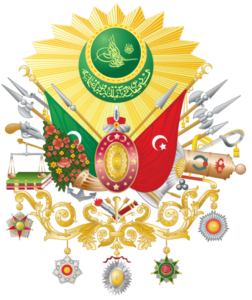Ottoman Empire Personality Type
Turkish empire (1299–1922)
The Ottoman Empire (; Ottoman Turkish: دولت عليه عثمانيه, romanized: Devlet-i ʿAlīye-i ʿOsmānīye; Turkish: Osmanlı İmparatorluğu or Osmanlı Devleti; French: Empire ottoman) also known as the Turkish Empire was an empire that controlled much of Southeast Europe, Western Asia, and Northern Africa between the 14th and early 20th centuries. It was founded at the end of the 13th century in northwestern Anatolia in the town of Söğüt (modern-day Bilecik Province) by the Turkoman tribal leader Osman I. After 1354, the Ottomans crossed into Europe and, with the conquest of the Balkans, the Ottoman beylik was transformed into a transcontinental empire. The Ottomans ended the Byzantine Empire with the conquest of Constantinople in 1453 by Mehmed the Conqueror.Under the reign of Suleiman the Magnificent, the Ottoman Empire marked the peak of its power and prosperity, as well as the highest development of its governmental, social, and economic systems. At the beginning of the 17th century, the empire contained 32 provinces and numerous vassal states. Some of these were later absorbed into the Ottoman Empire, while others were granted various types of autonomy over the course of centuries. With Constantinople (modern-day Istanbul) as its capital and control of lands around the Mediterranean Basin, the Ottoman Empire was at the centre of interactions between the Middle East and Europe for six centuries.

